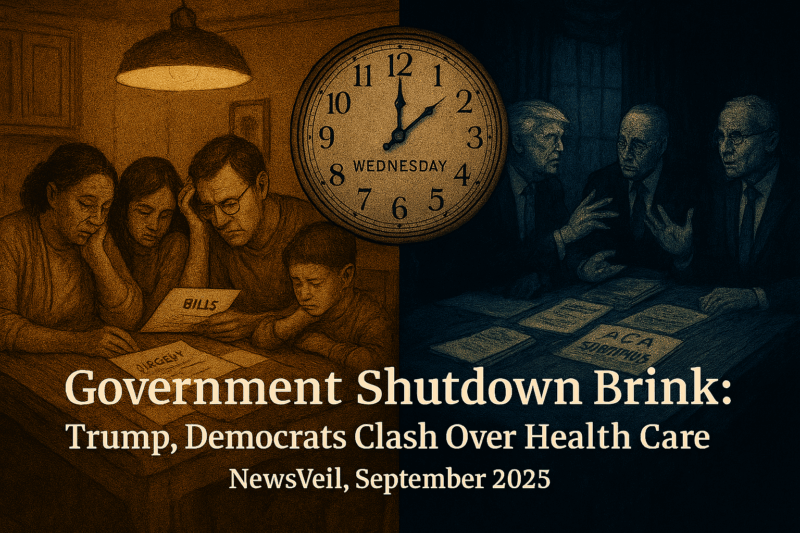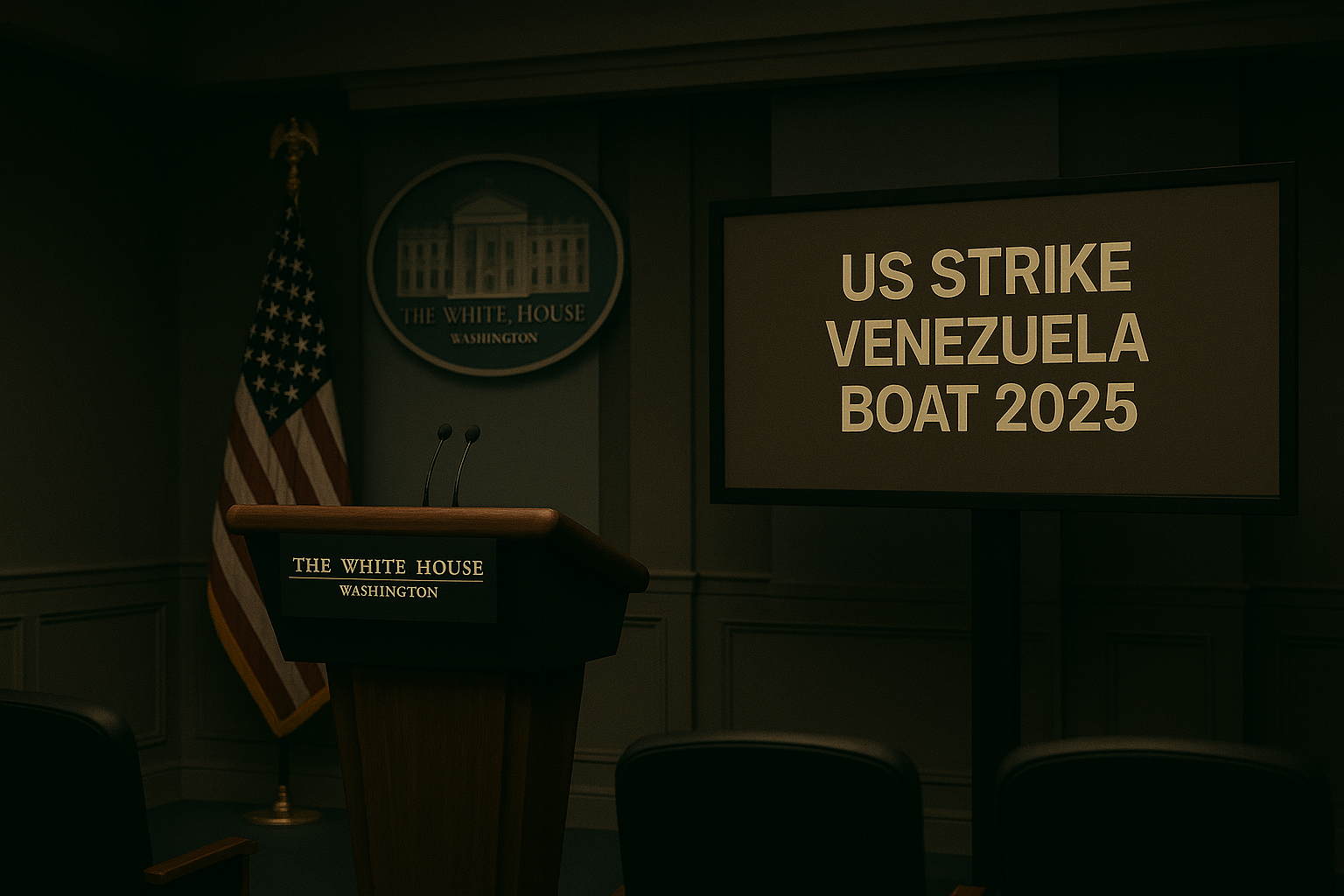A Nation on the Brink: Whispers of Shutdown Echo Through Washington Halls
In the marbled corridors of Capitol Hill, where echoes of past crises linger like ghosts, a familiar dread stirs. As the clock ticks toward Wednesday’s midnight funding deadline, President Donald Trump’s voice booms from the White House: “The radical left Democrats want to shut it down.” His words, laced with accusation, paint a picture of partisan sabotage, but beneath them lies a deeper human ache—the quiet fear gripping federal workers, single parents eyeing empty pantries, and communities bracing for disrupted services. The government shutdown threat isn’t just fiscal brinkmanship; it’s a raw fracture in America’s promise of stability, where demands for health care funding collide with cries for a leaner bureaucracy. For families already stretched thin, this political blame game feels like a cruel lottery, with livelihoods hanging by a thread woven from congressional egos and expired budgets.
This moment, raw with urgency, reminds us: Shutdowns don’t shutter buildings—they shatter routines, turning essential workers into reluctant spectators in a game of chicken.
The Human Heartbeat: Federal Families Facing the Shutdown Storm
Envision a mid-level VA clerk in Virginia, juggling mortgage payments and a child’s braces, only to learn her paycheck might vanish by week’s end. Or a park ranger in Yellowstone, furloughed yet again, watching dreams of stability erode like canyon walls. The government shutdown’s shadow falls heaviest on these unsung heroes—2.1 million federal civilians, plus contractors, whose lives grind to a halt without pay. Trump’s pivot to “reductions in force” over traditional furloughs signals not a pause, but a purge: mass layoffs that could erase jobs permanently, upending retirements and relocations. “Yet another massive upheaval in the federal workforce,” the article laments, evoking the 2018-2019 shutdown’s scars, where 800,000 workers went unpaid for 35 days, accruing $11 billion in back wages.
The emotional toll? Sleepless nights, strained marriages, and a gnawing distrust in the system they serve. Democrats like Sen. Chris Murphy capture the anguish: “Trump is literally boycotting meeting with Democrats… He wants a shutdown.” For these families, the political blame game isn’t rhetoric—it’s rent due and medicine unaffordable, a poignant reminder that policy wars wage war on the vulnerable.
Deadline Drama: Timeline and Facts Fueling the Government Shutdown Threat
The facts unfold like a high-stakes script, rooted in verified deadlines and defiant declarations. Congress must pass a funding bill by Wednesday to avert the government shutdown, extending operations through December or beyond. Republicans, led by House Speaker Mike Johnson and Senate Majority Leader John Thune, push a “clean” short-term extension—no policy riders—echoing Trump’s call for simplicity amid chaos.
Democrats counter with targeted demands: Extend Affordable Care Act subsidies for low- and middle-income Americans, shielding 21 million from premium hikes averaging $705 annually, and reverse Medicaid cuts from the GOP’s earlier tax and border spending package, which slashed $800 billion over a decade. Negotiations stuttered last week: Trump greenlit a Thursday sit-down with Schumer and Jeffries, only to scrap it over “unserious and ridiculous demands,” per his social media post—then reversed, scheduling Monday’s huddle with all four leaders.
Key quote: Thune told the AP, “My assumption is, he’s going to be willing to sit down and talk about at least one of these issues… Frankly, I just don’t know what you negotiate at this point.” No statistics on projected economic losses yet, but history warns: The 2018 shutdown cost $3 billion in GDP and spiked food bank visits by 20%. Trump’s OMB memo? A blueprint for austerity, prioritizing permanent cuts over temporary halts.
Fractured Alliances: Health Care Funding in America’s Polarized Arena
This government shutdown specter isn’t born in vacuum—it’s a flare-up in the enduring Trump Democrats divide, where health care funding becomes battleground for broader visions. The ACA subsidies, set to expire without action, embody Democratic wins from Biden’s era, now imperiled by GOP fiscal hawks eyeing deficit reduction. Medicaid cuts, tied to border wall funding in Trump’s tax bill, underscore the partisan calculus: Security versus social safety nets, with 40 million Medicaid enrollees at risk of coverage gaps.
Historically, it echoes 2018’s 35-day impasse over border walls, where Trump blamed Democrats too—yet polls showed public ire turning Republican. Socially, it exacerbates inequities: Rural hospitals, reliant on Medicaid, face closure waves, while urban families grapple with premium spikes amid inflation. Broader implications? A test for the slim GOP majorities, with midterms looming in 2026; a shutdown could flip seats, as 2018’s did. Globally, it signals U.S. governance fragility, eroding soft power. Internal link: Lessons from the 2018 Shutdown. External: AP’s Shutdown Tracker.
Paths to Resolution: Resilience Amid the Brink
Bridging the Health Care Divide
As Monday’s meeting dawns, hope flickers: Trump’s weekend thaw suggests wiggle room, perhaps bundling subsidies into a post-deadline deal. Reforms beckon—bipartisan budget pacts to avert serial crises, tying spending to automatic health care extensions. For federal workers, resilience means community funds and side gigs, but systemic fixes demand Congress prioritize people over posturing.
Nationally, it calls for electoral reckoning: Voters, weary of games, may demand accountability in 2026. Globally, a lesson in compromise—America’s drama urges allies to fortify fiscal firewalls against populist stalls.
A Fragile Truce on the Horizon: Hope Beyond the Shutdown Shadow
As the government shutdown deadline looms, Trump’s unyielding blame on Democrats over health care funding lays bare a painful truth: In Washington’s coliseum, real lives fuel the spectacle. From federal families’ quiet fears to the political blame game’s roar, this crisis tugs at America’s communal heart—urging not division, but dialogue. Monday’s talks may yet avert chaos, restoring paychecks and premiums. In this moment of tension, may compassion guide the gavel, weaving stability from the threads of compromise.






